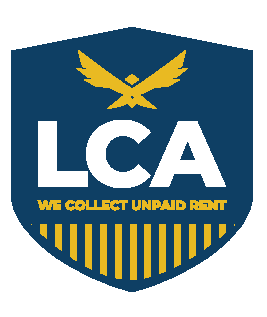For those of us managing rental properties in Connecticut, the threat of water damage is ever-present. From burst pipes to overflowing appliances, leaks to heavy rains, these events can wreak havoc on our properties and put a strain on our budgets. Navigating the complexities of insurance claims in such situations can be equally daunting.
This comprehensive guide aims to equip you with the knowledge and resources to handle water claims efficiently and effectively while minimizing financial losses.
Understanding Your Policy:
- Review your insurance policy meticulously: Familiarize yourself with the specific types of water damage covered and any exclusions that might apply. Look for clauses related to frozen pipes, sewer backups, appliance failures, and weather-related events.
- Know your deductibles and limits: Be aware of the amount you’ll be responsible for before the insurance company kicks in.
- Check coverage for temporary housing: Some policies cover temporary housing for tenants displaced by water damage, while others offer additional living expenses coverage.
- Document everything: Maintain proper records of your property, including maintenance logs,receipts for repairs, and photographs of the damage before and after mitigation efforts. This documentation will be crucial for your claim.
Taking Prompt Action:
- Act fast to mitigate damage: The quicker you address the source of the leak and prevent further damage, the lower the repair costs and the higher your chances of a smooth claim process.
- Notify your insurance company immediately: Don’t delay! Promptly inform your insurer about the damage and follow their instructions to the letter. They may advise specific steps for mitigating the damage and filing the claim.
- Contact a qualified plumber or restoration company: Choose a licensed and insured professional to handle the repairs. Be wary of fly-by-night operators who might overcharge or do shoddy work.
- Keep the lines of communication open: Maintain regular communication with your tenants,insurance adjuster, and repair technicians. Keep everyone informed of the progress and any changes in the situation.
Claim Tips and Tricks:
- Gather detailed evidence: Take photographs and videos of the damage from various angles,including close-ups of the source of the leak, affected areas, and any temporary repairs undertaken.
- Document repair estimates: Obtain several estimates from qualified contractors to support the cost of repairs.
- Review the adjuster’s report carefully: Make sure the report accurately reflects the extent of the damage and the proposed repairs. If you have any discrepancies, raise them with the adjuster promptly.
- Negotiate your claim: Don’t be afraid to negotiate the settlement amount if you feel it’s unfair.Provide your documentation and rationale to support your position.
- Hire A Private Insurance Adjuster: Private Adjusters represent your interests and not the insurance company. They often can provide larger settlements for the claim.
In Connecticut, renters and landlords have specific responsibilities regarding water damage and insurance claims. Here’s a breakdown:
Landlord Responsibility:
- Connecticut law mandates that landlords provide habitable dwellings [CT.gov, Department of Public Health]. This translates to maintaining the property in a safe and healthy condition for tenants, including functioning plumbing and prompt leak repair.
Renter Responsibility and Insurance:
- While renters insurance isn’t mandatory in Connecticut, it’s highly recommended. Even if the landlord covers building repairs, the renter’s insurance would protect their belongings damaged by the water leak.
- As in other states, if the water damage resulted from the renter’s negligence (e.g., a burst washing machine hose due to improper installation), their renter’s insurance might not cover repairs to the apartment itself but could cover their damaged belongings.
Resolving the Issue:
- The Connecticut Department of Public Health ([CT.gov, Department of Public Health]) offers resources and information on landlord-tenant rights.
- In the event of a disagreement regarding who’s responsible for water damage or repairs, the renter may consider mediation or contacting the Connecticut Department of Consumer Protection ([CT.gov, Department of Consumer Protection]) for guidance.
Tips for Renters in Connecticut:
- A renter should carefully review their lease agreement to understand any specific terms related to water damage or maintenance responsibilities.
- Prompt communication with the landlord regarding water leaks or damage issues is essential.
- Taking photos and videos of the damage and the leak source, along with keeping copies of any communication with the landlord, is crucial for documentation purposes.
By understanding these rights and responsibilities, and by thoroughly documenting everything, a renter in Connecticut can navigate a water damage situation in their rental more effectively.
There are a couple of reasons why an insurance company might deny a water damage claim:
-
Gradual vs. Sudden Damage: Homeowner’s insurance typically covers sudden and accidental water damage, like a burst pipe. They generally won’t cover slow, ongoing leaks that cause damage over time [e.g., leaky roof]. This is because homeowners are expected to maintain their property and catch leaks before they cause major damage.
-
Flood Damage: Standard homeowner’s policies exclude flood damage. Flood insurance is a separate policy altogether. So, if your basement floods from overflowing rivers or heavy rain, that wouldn’t be covered by your regular homeowner’s insurance.
-
Neglect: If the insurance company believes you neglected to properly maintain your property and that led to the water damage, they might deny your claim. For example, if a pipe froze and burst because you left your house vacant in the winter without heat, that could be considered neglect. This gets a little trickier when a tenant is involved.
-
Lack of Documentation: The insurance company needs evidence to process your claim. If you can’t provide documentation like photos, videos, receipts, or repair estimates, it will be harder to get your claim approved.
If you have a water damage claim that’s been denied, it’s important to understand why. Review your policy carefully and consider talking to your insurance agent or a lawyer who specializes in insurance claims.
How do I make a successful water leak insurance claim?
Here are the steps you can take to increase your chances of a successful water leak insurance claim:
-
Minimize Further Damage: Act quickly to stop the water flow. Turn off the main water supply if possible, or isolate the shutoff valve for the specific pipe that burst. Mitigate further damage by removing wet belongings and furniture from the area.
-
Document Everything: Take photos and videos of the damage, including close-ups of the leak source, the affected areas, and any damaged belongings. Make a list of the damaged items, including descriptions and estimated values if possible.
-
Contact Your Insurance Company Promptly: Review your policy to understand the claim filing process and deadlines. Most companies allow you to file a claim online or by phone. Be prepared to provide details about the water leak, the damage, and any preventative actions you took.
-
Gather Necessary Documentation: Your insurance company will likely request additional documentation to support your claim. This might include:
- Copy of your homeowner’s insurance policy
- Photos and videos of the damage
- List of damaged belongings
- Receipts for repairs (if any)
- Proof of purchase for damaged belongings (receipts, appraisals)
-
Cooperate with the Adjuster: The insurance company will send an adjuster to assess the damage. Be available to answer their questions and provide any requested information.
-
Understand Your Settlement Options: The insurance company will offer a settlement amount to cover the repairs and replacements. You have the right to negotiate the settlement if you believe it’s inadequate.
-
Work with Reputable Contractors: Once you have a settlement agreement, use the funds to hire licensed and insured contractors for repairs and restoration work.
Here are some additional tips:
- Review Your Policy: Familiarize yourself with your homeowner’s insurance policy beforehand, specifically the water damage coverage section.
- Maintain Your Plumbing: Regular maintenance of your plumbing system can help prevent leaks and potential damage.
- Keep Records: Keep copies of receipts for plumbing repairs and maintenance as evidence of your efforts to upkeep your home.
By following these steps and understanding your policy, you can increase your chances of a successful water leak insurance claim. Remember, if you have any questions or concerns throughout the process, don’t hesitate to contact your insurance agent or a lawyer specializing in insurance claims.
Prevention is Key:
- Regularly maintain plumbing and appliances: Schedule preventative maintenance checks for pipes,appliances, and water heaters to minimize the risk of leaks and failures.
- Educate your tenants: Inform your tenants about how to prevent water damage, such as properly turning off appliances, reporting leaks promptly, and knowing how to shut off the main water valve.
- Consider additional coverage: Depending on your location and risk assessment, consider additional coverage for sewer backups, flood damage, or other specific water-related perils.
Additional Resources:
- Connecticut Insurance Department: https://portal.ct.gov/cid
- National Flood Insurance Program: https://www.floodsmart.gov/
- International Association of Certified Home Inspectors: https://www.nachi.org/
By understanding your insurance coverage, acting promptly, documenting your actions, and taking preventative measures, you can navigate water claims with confidence and protect your investment in your Connecticut rental properties. Remember, knowledge is power, and being prepared can significantly impact your financial wellbeing and ensure a smooth recovery from water-related mishaps.
Happy renting, and may your pipes always flow smoothly!








